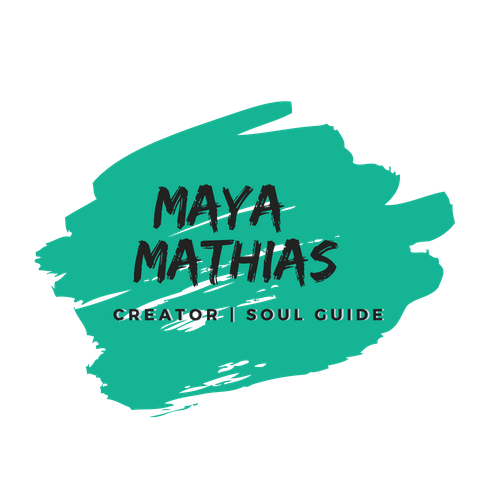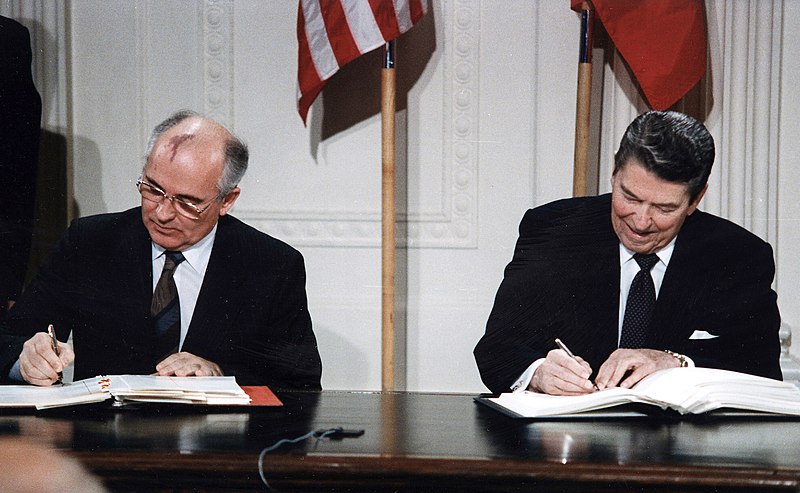
Feb 3 2019
Nuclear peace came into question this week. America kicked off Black History Month, and had to deal with an age-old symbol of racism and oppression of African Americans…expressed by an elected official.
As The World Turns
When treaties lose their teeth
Two nuclear treaties made the news this week, with no clear end points or paths forward.
The Iran nuclear deal, more formally known as the JCPOA, was signed in 2015 “to ensure that Iran’s nuclear program will be exclusively peaceful.” In May 2018, the current US administration pulled out of the deal, declaring it was flawed from the start and had not kept Iran’s nuclear ambitions in check. The remaining countries who signed the JCPOA decided to stay in the accord. This week, those remaining countries set up a clearinghouse “that allows Iran to trade goods with foreign companies without any money exchanged,” which helps Iran avoid the US sanctions that were fully re-imposed in Nov 2018. In defending this move, one signatory said:
“Well, we don’t share the (US) administration’s analysis, but we understand that they take a different view, and we are friends and allies, but sometimes we take a different view. And that is the case in this instance.”
David O’Sullivan
EU Ambassador to the US, in a PBS News hour interviewSoviet leader Mikhail Gorbachev and President Ronald Reagan signed the Intermediate-Range Nuclear Forces Treaty (INF) in December 1987, “to destroy nearly 3,000 intermediate-range and short-range missiles and follow a strict verification regime to ensure they never returned again.” (I remember watching this signing ceremony on TV. It gave me a sense of comfort, that world leaders were being responsible with their weapons and truly interested in building a more peaceful world. It also helped me respect Mikhail Gorbachev and Ronald Reagan, who were able to reach across their ideological differences in the name of world peace.)
In the 30 years since, not only have both countries accused each other of violating the treaty, but China has grown its own nuclear and conventional missile inventory, and has no interest being covered under the INF treaty. So this week, when the current US administration announced it would suspend the treaty, experts worried it would trigger a new arms race, and raised concerns like:
“Nobody in the administration has laid out what the action-reaction cycle looks like as the United States makes all these moves — building new warheads, withdrawing from treaties, pursuing new missiles.”
John Wolfsthal
Nuclear weapons and nonproliferation consultantHave we, as a human race, grown complacent about the (relative) peace we now enjoy, without the looming threat of nuclear war? It wasn’t that long ago when we were crouching under our desks, practicing drills for when a bomb might fall on us. Or when the Hiroshima and Nagasaki bombs that ended World War II left permanent scars for its survivors.
The world’s powers are jostling for supremacy (or legitimacy in the case of North Korea), and one of the ways they know how is to build up a nuclear arsenal and threaten to drop them on each other. I hope common sense will prevail, and that we can return to that 1987 sense of mutual peacebuilding.
Black history, divisive start
America honors its African American community every February with Black History Month. This year’s reflections got off to a dark start when a medical school yearbook photo of Virginia Governor Ralph Northam surfaced. The photo is of two young men, one dressed in blackface and the other in a Ku Klux Klan robe and hood. One outfit a symbol of ridicule, the other a symbol of terrorism…symbols that have been inflicted on African Americans since the 19th Century.
After Gov Northam admitted and apologized for being in the photo, then denying he was either of the two young men pictured, while admitting to blackening his face when impersonating Michael Jackson in a dance contest that same year (1984), I know I wasn’t the only person suffering from whiplash this past weekend. I watched his entire press conference yesterday, curious about what he would say and how he would say it.
This particular exchange summed things up for me:
UNIDENTIFIED REPORTER: Do you think it’s problematic that you need to have it explained to you that blackface is offensive? NORTHAM: No. You know, I’m not a person of color. And people of color experience different things. It affects them different ways. And for us to have a dialogue, for example, me with you, you let me know what’s offensive to you and vice-versa —
The longer I live in America, the more I’ve noticed and sensed how segregated life is. Ethnic groups don’t intermingle as much as I thought they might. Of course, there are citizens who fall in love with a different culture so much, they even end up marrying into it. But there are also families and communities who stick to their own kind in all ways.
A phrase like “you let me know what’s offensive to you” is emblematic of that divide. It requires a blithe blindness to the complicated and painful history of America, a distinct disregard for the slaves and native American tribes who are a core fabric of American society. And it’s what keeps identity politics rife with identity…with the hunger for representative faces and voices who will counteract this blindness and disregard. Until we can see and acknowledge each other for our stories, and for the pain our forefathers had to endure, occasions like Black History Month will only be a band-aid over a canyon of a wound.
Om Is Where The Heart Is
Political prisoner, cultural warrior
 I was in the room when journalist Jason Rezaian reconnected with his Bay Area friends and family this week. The affection for him was real, as was the harrowing turn his life took as part of high-stakes diplomacy between two adversarial nations.
I was in the room when journalist Jason Rezaian reconnected with his Bay Area friends and family this week. The affection for him was real, as was the harrowing turn his life took as part of high-stakes diplomacy between two adversarial nations.
Jason was held captive for 544 days in an Iranian prison, and was released in Jan 2016 as part of ongoing Iran nuclear deal (JCPOA) negotiations. He’s chronicled this ordeal in his book Prisoner, and was in town on his book tour.
I want to give his story, and the lessons we can learn from it, its due accord. So it will likely end up on my Executive Book Club Podcast. My biggest takeaway, for now, is the grace and humor Jason carries; the long road to peace he’s on as he sheds the shackles of trauma and isolation of imprisonment; and, as an Iranian-American, how he hopes for a day when he can once again live in and between the two countries he loves.
News and Views
Podcast is alive (and well) again!
After a two-year hiatus, the Executive Book Club podcast is back up and running with its first new episode!
I’ve been sharing some of this podcast’s behind-the-scenes planning and creative decisions in recent issues of this newsletter, and it’s such a relief to finally birth this content baby.
Sign up here to get my new podcast episodes as they’re produced, or send me your suggestions for a book I could feature (it needs to meet the 3 criteria I shared in this newsletter).
In the next issue:
I’m producing another podcast, for citizens like us, in line with the stories and thoughts I share in this newsletter.
(Two podcasts?! I know, it’s madness to contemplate, but my creative Muse is insistent…so who am I to say no? 😉 I trust this work will help people, and that’s what counts at the end of the day.)
Will probably have some behind-the-scenes updates for you next week.
Till then…
Live well and lead large – Maya

